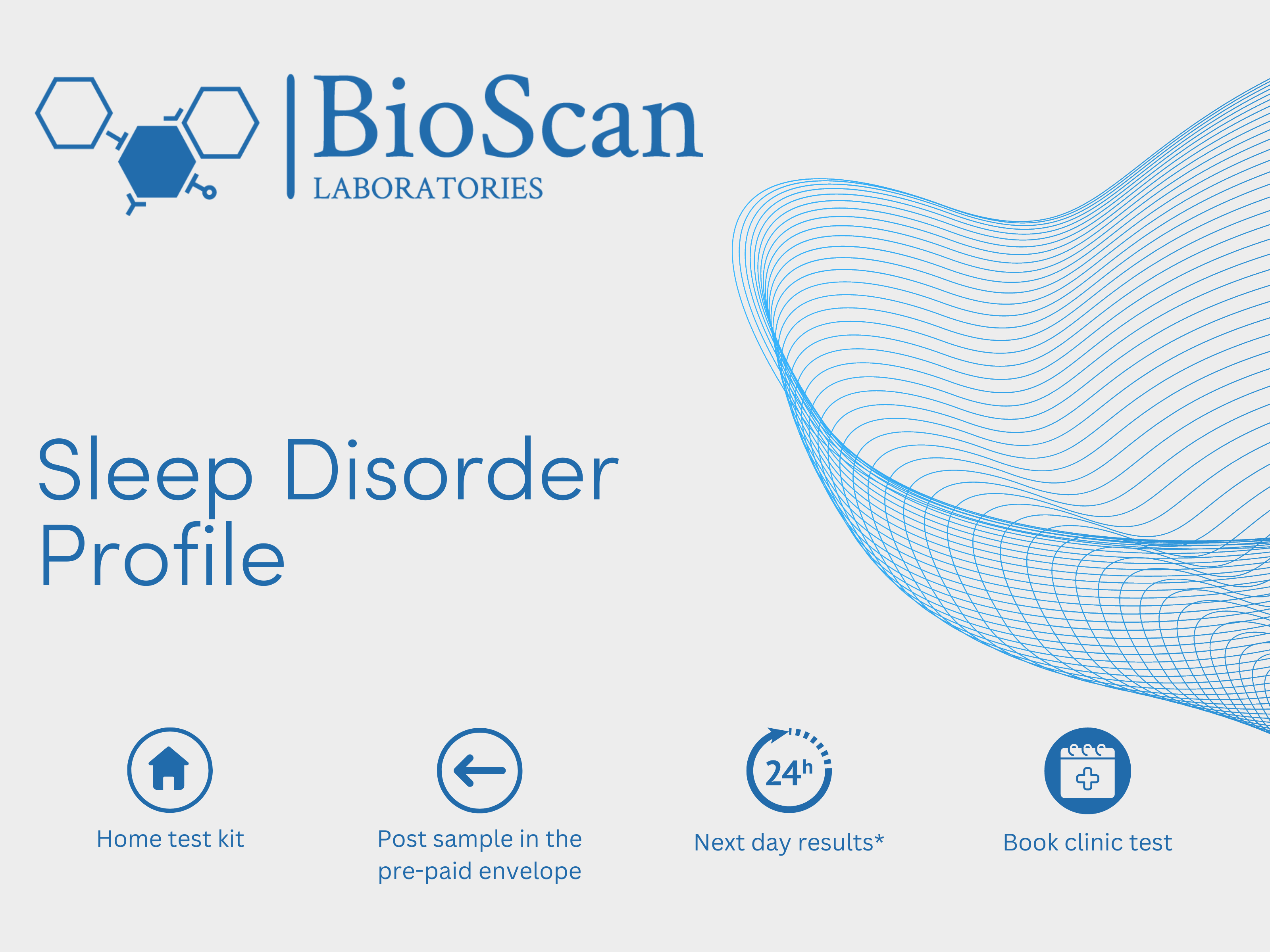
Sleep Disorder
Profile
£149.00
A sleep profile based on blood tests focuses on assessing various factors that might contribute to sleep-related issues. By analysing your blood, we can gain insights into potential underlying causes of your sleep concerns.
Onsite Test + Phlebotomy Service
Visit us in one of our test locations listed below. You will book your appointment during the checkout process.
Home Test Kit
£149.00 + £25.00
£149.00
Onsite Test + Phlebotomy Service
Visit us in one of our test locations listed below. You will book your appointment during the checkout process.
£149.00 + £25.00
Home Test Kit
Free
Haematology
Urea and Electrolytes
Thyroid Function Tests
Liver Function Tests
Free T4
This marker is the active form of the thyroid hormone. It helps regulate metabolism, body temperature, and energy levels. Imbalances in free T4 levels can impact sleep quality and patterns.
Free T3
This marker is a thyroid hormone that plays a crucial role in metabolism and energy regulation. Irregularities in free T3 levels can affect sleep-wake cycles and overall sleep quality.
TSH
This marker is produced by the pituitary gland and stimulates the thyroid gland to produce thyroid hormones. Abnormal TSH levels can indicate thyroid dysfunction, which can affect sleep patterns.
Vitamin D
This test measures the level of vitamin D in the blood. Vitamin D deficiency has been associated with sleep disorders, including sleep apnoea and restless leg syndrome.
TIBC measures the blood’s capacity to bind and transport iron. It helps evaluate how well the body can utilize iron for various functions.
Ferritin is a protein that stores iron in the body. Low ferritin levels indicate iron deficiency, which can contribute to sleep disturbances.
Full Blood Count
Haemoglobin is a protein in red blood cells that carries oxygen. Abnormal haemoglobin levels can impact oxygen delivery to tissues, affecting sleep quality.
Bilirubin (Direct/Indirect)
These markers assess the levels of bilirubin, a yellow pigment produced during the breakdown of red blood cells. Elevated levels can indicate liver or gallbladder dysfunction.
Aspartate Aminotransferase (AST)
This marker evaluates the levels of an enzyme called AST, which is found in various organs, including the liver and heart. Elevated levels can indicate liver or cardiac damage.
Alanine Aminotransferase (ALT)
This marker measures the levels of an enzyme called ALT, primarily found in the liver. Elevated levels may indicate liver damage or disease.
Sodium
This marker measures the levels of sodium in your blood, which plays a crucial role in maintaining proper fluid balance, nerve function, and muscle contraction.
Potassium
This marker assesses the levels of potassium, an electrolyte essential for maintaining proper heart function, nerve signalling, and muscle contractions.
Chloride
This marker evaluates the levels of chloride, an electrolyte that helps maintain fluid balance, regulate pH levels, and support proper nerve function.
Bicarbonate
This marker measures the levels of bicarbonate, which is involved in maintaining acid-base balance in the body and supporting proper pH levels.
Urea
This marker assesses the levels of urea, a waste product produced by the liver as a result of protein metabolism. Elevated levels may indicate kidney or liver dysfunction.
Creatinine
This marker evaluates the levels of creatinine, a waste product generated by muscle metabolism. It provides insight into kidney function and overall muscle health.
